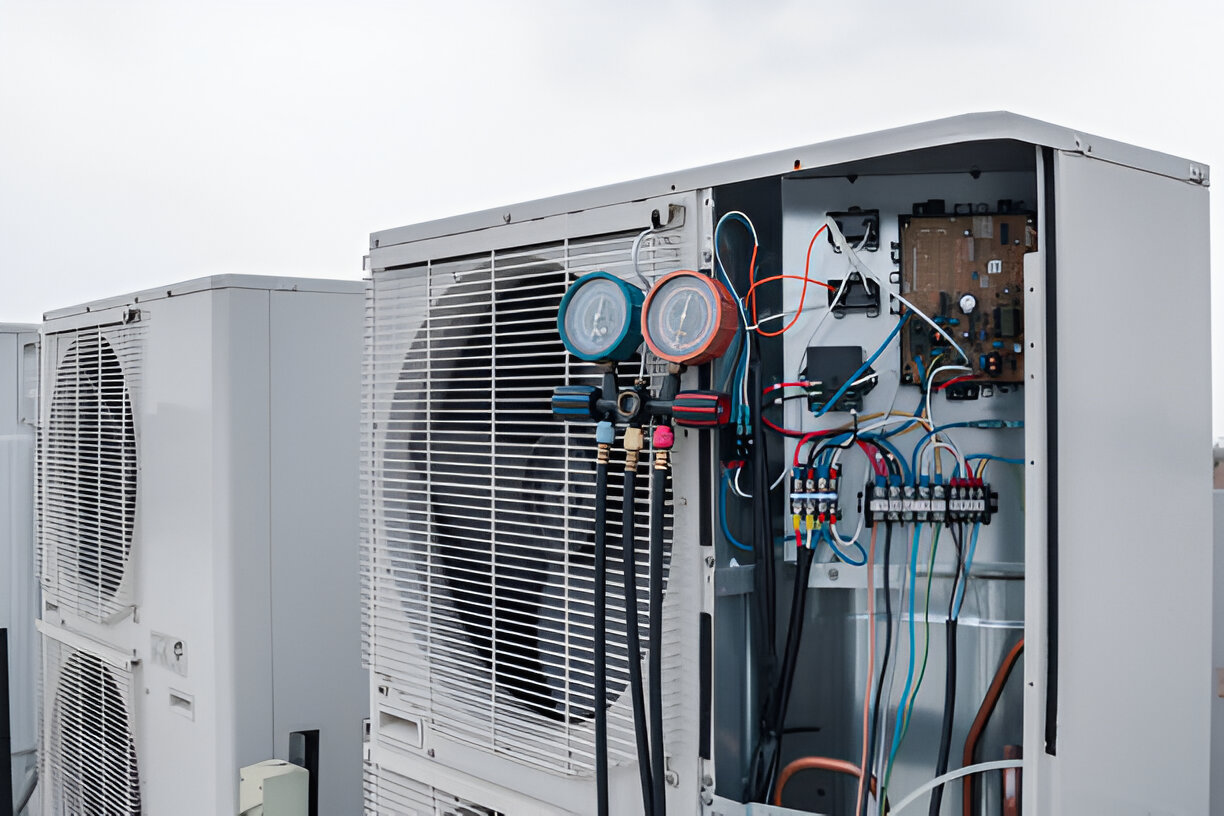
Heat Pump Tune-Up in East Ptersburg, PA
Keeping your heat pump tuned and running smoothly is one of the most effective ways to protect comfort and avoid emergency repairs in East Ptersburg, PA. A focused heat pump tune-up addresses common wear points, restores efficiency, and helps prevent midwinter or midsummer failures that are especially disruptive in our region’s humid summers and cold, changeable winters.
Why a heat pump tune-up matters in East Ptersburg
East Ptersburg homes experience both high summer humidity and freezing winter temperatures. That seasonal swing places unique stress on heat pump systems: coils collect pollen and dust in spring, condensate drains clog during humid months, and repeated freeze-thaw cycles can affect refrigerant performance and controls. Regular tune-ups reduce the risk of:
- Unexpected breakdowns during peak heating or cooling demand
- Higher energy use caused by dirty coils or poor airflow
- Short cycling or uneven temperatures through the home
- Premature component wear that shortens system life
Common heat pump issues we see locally
- Reduced cooling or heating capacity from dirty outdoor coils and indoor coils
- Clogged condensate drains and overflow problems during humid spells
- Refrigerant charge loss leading to inefficient operation
- Thermostat calibration and communication problems causing incorrect setpoints
- Electrical connections that loosen over time and create intermittent failures
- Defrost cycle or reversing valve faults that impair winter performance
What a professional heat pump tune-up includes
A comprehensive tune-up is a step-by-step inspection and adjustment routine that targets the items most likely to degrade performance. Typical tune-up tasks include:
- Visual system inspection: check cabinet, mounting, and duct connections for obvious issues or damage.
- Replace or inspect air filters: ensure proper airflow; recommend the correct filter type and size.
- Clean indoor and outdoor coils: remove dirt, pollen, and debris that reduce heat transfer and airflow.
- Clear and test condensate drain and pan: remove blockages and verify proper drainage to prevent water damage and microbial growth.
- Check refrigerant pressures and temperatures: measure pressures and temperature split to confirm proper refrigerant charge and identify leaks.
- Test compressor and fan motors: verify proper amperage draw and smooth operation; lubricate motors where applicable.
- Calibrate thermostat and controls: confirm accurate temperature sensing, setpoint response, and communication with the outdoor unit.
- Test safety and control circuits: verify defrost control, high/low pressure limits, and reversing valve operation.
- Tighten electrical connections and inspect wiring: reduce arcing risk and intermittent failures by securing terminals and checking capacitors and contactors.
- Measure airflow and duct performance (where accessible): ensure proper supply and return flow for balanced comfort.
- Report and explain findings: provide a clear summary of issues found, recommended repairs, and expected benefits.
Typical duration and what affects the time
Most standard residential heat pump tune-ups in single-family homes take about 60 to 90 minutes for a single outdoor unit and connected indoor air handler. Factors that can lengthen the visit include:
- Multiple systems or multi-zone ductwork
- Heavily soiled coils or a clogged condensate system needing extra cleaning
- Identified refrigerant leaks or parts that need replacement
- Older systems that require additional testing or troubleshooting
Expected improvements after a tune-up
After a proper tune-up you should notice measurable and practical benefits:
- Improved efficiency and steadier temperatures throughout the home
- Smoother starts and fewer short cycles
- Reduced risk of mid-season breakdowns
- Quieter operation from well-lubricated motors and tightened panels
- Extended equipment life and better long-term reliability
While exact energy savings vary by unit age and condition, a well-maintained heat pump commonly operates more efficiently and can help avoid costly system-level repairs down the road.
Best timing: when to schedule your tune-ups
For East Ptersburg homes, the ideal time for heat pump tune-ups is twice yearly: once in early fall before the heating season and once in late spring before cooling is needed. Seasonal timing allows technicians to:
- Prepare the system for colder weather and verify defrost and reversing functions
- Remove spring pollen and grime before the summer cooling load
- Catch minor issues when they’re easier and less expensive to fix than during peak demand
If you use your heat pump as the primary source of heat, prioritize the fall visit to ensure reliable winter performance.
How tune-ups fit into a broader maintenance plan
A single tune-up is valuable, but the best protection comes from a planned maintenance program. Regular visits (annual or semiannual) create a consistent service history that helps technicians spot trends—such as slow refrigerant loss, failing capacitors, or persistent airflow restrictions—before they lead to major failures. Components that benefit from scheduled service include:
- Filters changed on a regular cadence to preserve airflow
- Electrical connections inspected annually
- Coils cleaned seasonally to protect efficiency
- Refrigerant levels checked routinely to detect leaks early
A maintenance plan also helps budget for eventual replacements by identifying systems nearing the end of useful life and planning replacements during off-peak seasons.


Enjoy flexible financing options that make upgrading or repairing your HVAC system easy and budget-friendly.










